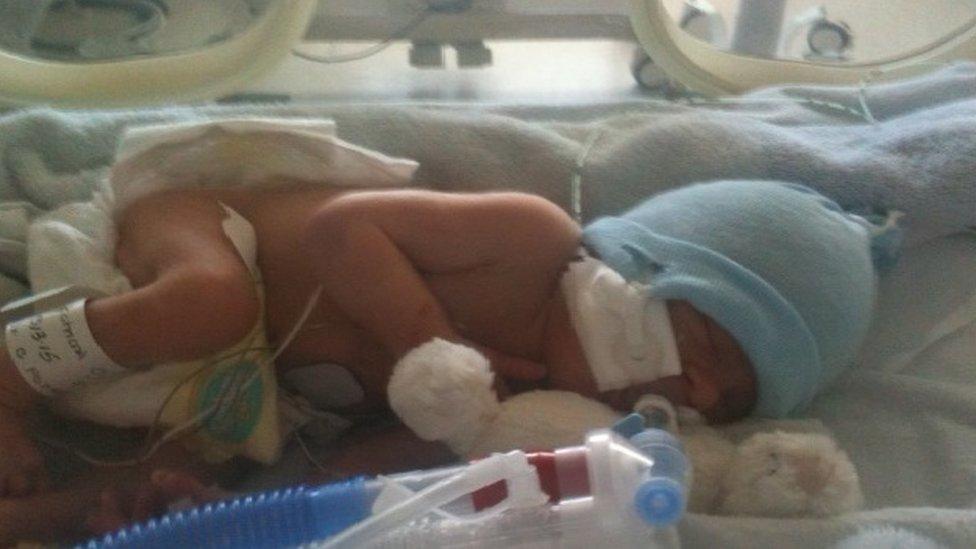Premature baby parents 'need extra maternity leave'
- Published
Matthew is still much smaller than his peers
The mother of a baby boy who was born prematurely has backed calls for parents like her to get extra maternity leave.
When Sarah Kirker's son, Matthew, was born on 1 April, at 24 weeks gestation, he was the most premature baby in the UK.
As a consequence, Mrs Kirker's maternity leave also arrived early. It started the day after Matthew was born.
"I felt my maternity leave slipping away," she told BBC News NI.
"I didn't know whether Matthew was going to survive and if he did, how long I would get to spend at home with him before I had to go back to work."
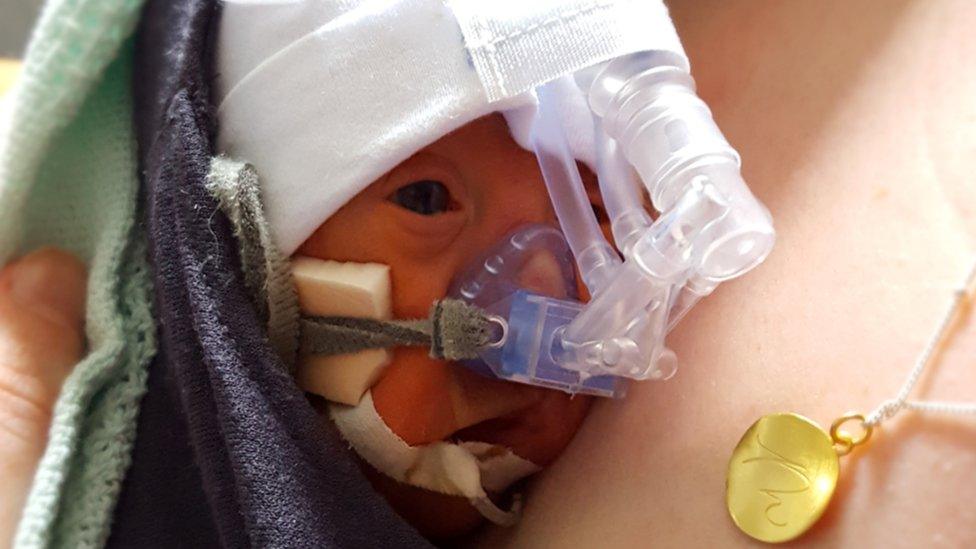
Baby Matthew Kirker was born on 1 April 2018
Mrs Kirker, from Larne, County Antrim, was faced with an impossible choice - go back to work while Matthew was in hospital fighting for his life, or let the time tick away before she even brought her baby home.
Matthew was released 84 days later in June. Up until then, his mum and dad travelled a 50-mile round trip to Belfast every day to see him.
She also expressed milk every three hours for Matthew while he was in hospital.
Now her maternity leave is coming to an end and she is due to go back to work in December.
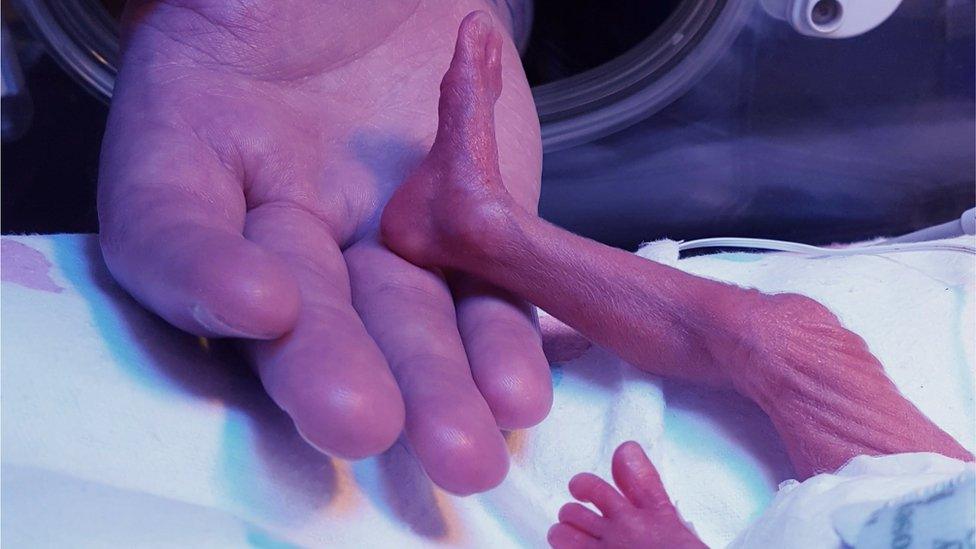
Matthew spent the first three months of his life in hospital
Matthew has had just under six months at home with his mum and still has lots of catching up to do.
"Matthew's immune system and nervous system are underdeveloped," Mrs Kirker said.
"Everything is a stress for him.
"He also hasn't been weaned and, obviously, he is still very small."
In the Republic of Ireland, the government introduced extended maternity leave, giving parents critical time at home after their baby has been discharged.
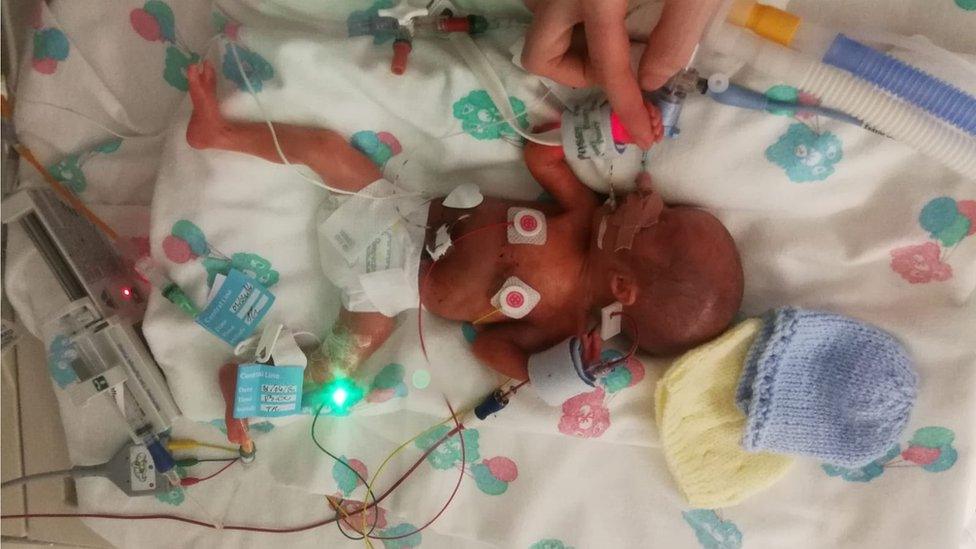
Matthew's mum and dad were not sure if he would survive his premature birth
In London, Mayor Sadiq Khan said he would allow extra paid leave for staff at City Hall whose babies were born early.
Premature and vulnerable baby charity, Tiny Life, and Alliance MLA Kelly Armstrong have been working on a motion to the Northern Ireland Assembly asking MLAs to lobby the government to take action on the issue, but nothing can be done with the motion until devolution is restored.
As maternity leave is a benefit, it is not a devolved issue and any legislation must go through Westminster.
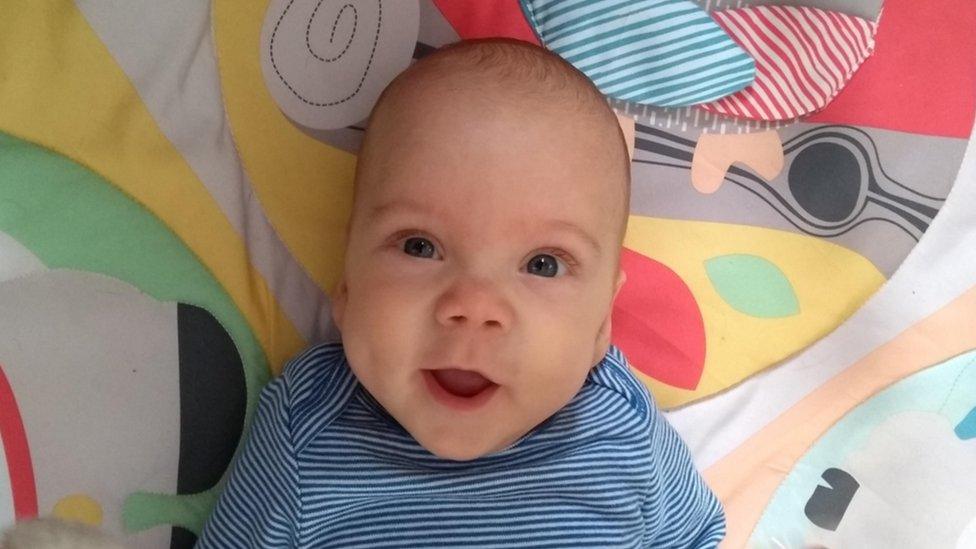
Matthew was happy to hear that the Mayor of London was giving extra leave to parents like his mum and dad
TinyLife is hoping to take the campaign forward in the new year.
"We know from research that the period post-discharge is the most challenging and stressful for parents, many of whom talk about hitting a brick wall emotionally," said Alison McNulty, from TinyLife.
"Parents lose out on that crucial early development stage of having months of bonding and attaching to their baby in their own home, which is essential for longer-term outcomes and mental health for both baby and parents.
"Additionally, parents have been put under considerable financial pressure when the mother's income is reduced, with many having to take unpaid leave if they want to take additional leave when their baby is discharged."
- Published3 October 2018
